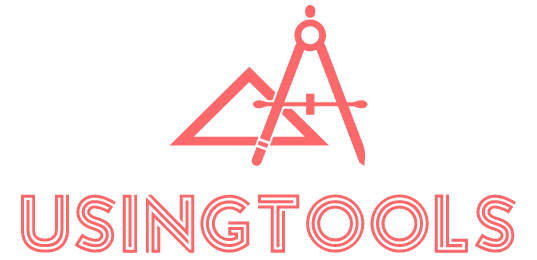Technology has become an indispensable part of running a successful small business in today’s digital age. With the right tools and solutions, small businesses can streamline operations, enhance productivity, improve customer experiences, and gain a competitive edge. This guide explores the best technology tools and strategies that can empower small businesses to achieve their goals and thrive in a rapidly evolving marketplace.
From cloud computing and collaboration tools to e-commerce platforms and cybersecurity solutions, we’ll delve into a comprehensive range of technologies designed to support various aspects of small business operations. Whether you’re a startup or an established small enterprise, leveraging the right technology can help you optimize processes, reduce costs, and unlock new growth opportunities.
By embracing the power of technology, small businesses can level the playing field, compete with larger corporations, and deliver exceptional value to their customers. This guide aims to provide a practical overview of the essential technology tools, equipping small business owners and entrepreneurs with the knowledge to make informed decisions and stay ahead of the curve.
Table of Contents
Cloud Computing and Storage Solutions
Cloud computing and storage solutions have become essential for small businesses, offering numerous advantages over traditional on-premises systems. One of the primary benefits of cloud computing is its scalability, allowing businesses to easily expand or reduce their computing resources as needed, without the need for significant upfront investments in hardware and infrastructure.
Another key advantage is accessibility. Cloud-based services can be accessed from anywhere with an internet connection, enabling remote work and collaboration among team members. This flexibility is particularly valuable for small businesses with employees working from different locations or on the go.
Popular cloud storage and file-sharing tools like Dropbox, Google Drive, and Microsoft OneDrive provide secure and convenient ways to store, access, and share files across devices and team members. These tools often offer features like version control, real-time collaboration, and automatic syncing, streamlining workflows and improving productivity.
When it comes to security considerations, reputable cloud service providers typically employ robust security measures, such as data encryption, access controls, and regular backups. However, it’s essential for small businesses to understand and follow best practices for secure cloud usage, such as implementing strong password policies, enabling two-factor authentication, and regularly reviewing access permissions.
Additionally, small businesses should carefully review the service level agreements (SLAs) and data privacy policies of cloud providers to ensure compliance with relevant regulations and industry standards.
Communication and Collaboration Tools
Effective communication and collaboration are essential for small businesses to operate efficiently and stay connected with team members, clients, and partners. Here are some of the best technology tools in this category:
Email: Despite the rise of instant messaging and social media, email remains a crucial communication tool for businesses. Cloud-based email services like Gmail and Outlook offer professional email hosting, large storage capacities, and seamless integration with other productivity tools.
Video Conferencing: With remote work becoming more prevalent, video conferencing tools have become indispensable for virtual meetings, interviews, and presentations. Platforms like Zoom, Google Meet, and Microsoft Teams offer high-quality video and audio, screen sharing, and recording capabilities, making it easy to collaborate with remote teams and clients.
Project Management Software: Keeping track of tasks, deadlines, and progress can be challenging, especially for small businesses juggling multiple projects. Project management tools like Asana, Trello, and Basecamp provide a centralized platform for team members to assign tasks, set due dates, share files, and monitor project progress.
Team Messaging Apps: Real-time communication is crucial for small businesses to stay agile and responsive. Team messaging apps like Slack, Microsoft Teams, and Google Chat enable instant messaging, file sharing, and video calls, fostering seamless collaboration and reducing the need for endless email threads.
By leveraging these communication and collaboration tools, small businesses can streamline their operations, improve productivity, and foster a more connected and efficient work environment, regardless of physical location.
Customer Relationship Management (CRM) Software
Customer Relationship Management (CRM) software is a crucial tool for small businesses looking to streamline their sales, marketing, and customer service processes. In today’s competitive landscape, effective management of customer interactions and data is essential for building lasting relationships and driving growth.
The importance of CRM for small businesses cannot be overstated. It provides a centralized platform to store and manage customer information, track interactions, and analyze data to gain valuable insights. By having a comprehensive view of each customer’s journey, businesses can personalize their approach, identify opportunities for cross-selling or upselling, and deliver exceptional customer experiences.
Popular CRM solutions for small businesses include:
- HubSpot CRM: A user-friendly and powerful CRM that offers a free version with robust features for contact management, deal tracking, and email integration.
- Zoho CRM: A versatile and affordable CRM with a range of customization options, automation capabilities, and integrations with other Zoho products.
- Salesforce Essentials: Designed specifically for small businesses, Salesforce Essentials provides a streamlined CRM experience with sales and customer service tools.
- Freshworks CRM: A modern and intuitive CRM with a strong focus on customer support, automation, and AI-powered insights.
These CRM solutions often come with a range of features and benefits, including:
- Contact Management: Easily store and organize customer information, including contact details, communication history, and notes.
- Lead and Opportunity Tracking: Manage leads from initial contact to closed deals, ensuring no potential customers fall through the cracks.
- Sales Automation: Automate repetitive tasks, such as follow-ups, reminders, and data entry, to improve productivity and efficiency.
- Marketing Integration: Seamlessly integrate with marketing tools and campaigns, enabling better lead nurturing and customer engagement.
- Reporting and Analytics: Gain insights into sales performance, customer behavior, and trends through customizable reports and dashboards.
- Mobile Access: Access customer data and update records on-the-go, enabling seamless collaboration and productivity for remote teams.
By leveraging the power of CRM software, small businesses can streamline their operations, enhance customer relationships, and make data-driven decisions to drive growth and success in the competitive market.
Accounting and Financial Management Tools
Effective financial management is crucial for the success of any small business. Accounting and financial management tools streamline processes, improve accuracy, and provide valuable insights into your business’s financial health. These tools can help you stay organized, save time, and make informed decisions.
Invoicing Software: Invoicing software simplifies the billing process by allowing you to create professional-looking invoices, track payments, and manage accounts receivable. Popular options like FreshBooks, Zoho Invoice, and QuickBooks Online offer features such as recurring invoices, online payments, and automatic late payment reminders.
Expense Tracking: Keeping track of expenses is essential for accurate bookkeeping and tax preparation. Tools like Expensify, Shoeboxed, and Wave’s free accounting software make it easy to capture receipts, categorize expenses, and generate expense reports. Some even offer mobile apps for seamless expense tracking on the go.
Payroll Management: Managing payroll can be a time-consuming and complex task, especially as your business grows. Payroll software like Gusto, OnPay, and Patriot Software automate payroll calculations, tax filings, and employee payment processing, ensuring compliance and reducing the risk of errors.
Tax Preparation: Preparing and filing taxes can be daunting for small business owners. Tax software like TurboTax, H&R Block, and TaxAct simplify the process by guiding you through deductions, credits, and filing requirements. Some even offer year-round support and integration with accounting software for seamless data transfer.
By leveraging these accounting and financial management tools, small businesses can streamline processes, improve accuracy, and gain valuable insights into their financial performance. With real-time data and automated reporting, you can make informed decisions, optimize cash flow, and ensure compliance with tax regulations.
E-commerce and Online Selling Platforms
For small businesses looking to reach a wider audience and boost sales, having an online presence is crucial. E-commerce platforms and online selling tools provide a convenient and cost-effective way to establish an online store, streamline operations, and tap into the vast potential of the digital marketplace.
Building an Online Store: Setting up an online store has become increasingly accessible with user-friendly e-commerce platforms like Shopify, WooCommerce, and BigCommerce. These platforms offer customizable templates, seamless integration with payment gateways, and a range of features to enhance the shopping experience for customers. With drag-and-drop website builders and intuitive interfaces, even those with limited technical expertise can create a professional-looking online store.
Website Builders: If you’re not ready to commit to a full-fledged e-commerce platform, website builders like Wix, Squarespace, and Weebly offer affordable options to create a visually appealing online presence. These tools provide templates, drag-and-drop editors, and basic e-commerce functionality, making it easy to showcase your products or services and accept online payments.
Payment Gateways: Secure and reliable payment processing is essential for any online business. Popular payment gateways like PayPal, Stripe, and Square integrate seamlessly with e-commerce platforms and website builders, enabling you to accept various payment methods, including credit cards, digital wallets, and even cryptocurrencies. These gateways ensure a smooth and secure checkout experience for your customers.
Inventory Management: As your online business grows, efficient inventory management becomes crucial. Tools like Zoho Inventory, Orderhive, and inFlow Cloud provide real-time tracking of stock levels, automated reordering, and integration with e-commerce platforms and accounting software. This streamlines operations, reduces overselling, and improves overall efficiency.
By leveraging the right e-commerce and online selling tools, small businesses can expand their reach, enhance customer experiences, and stay competitive in the digital age.
Social Media and Marketing Automation
Social media has become an essential component of modern marketing strategies, allowing businesses to connect with their target audience, build brand awareness, and drive engagement. Effective social media management tools can streamline your social media efforts, saving time and ensuring a consistent brand presence across multiple platforms.
Tools like Hootsuite, Buffer, and Sprout Social offer comprehensive social media management capabilities, including scheduling posts, monitoring conversations, and analyzing performance metrics. These tools enable businesses to plan and execute their social media campaigns efficiently, ensuring a steady stream of content across platforms like Facebook, Twitter, Instagram, and LinkedIn.
Email marketing remains a powerful channel for nurturing leads, building customer relationships, and driving sales. Email marketing software like Mailchimp, Constant Contact, and HubSpot offer user-friendly interfaces for creating visually appealing email campaigns, managing subscriber lists, and tracking key metrics like open rates and click-through rates.
Content scheduling tools, such as CoSchedule and Loomly, allow businesses to plan and organize their content across multiple channels, including social media, blogs, and email campaigns. These tools help maintain a consistent content calendar, ensuring that your messaging is timely and aligned with your overall marketing strategy.
By leveraging social media management tools, email marketing software, and content scheduling platforms, small businesses can streamline their marketing efforts, reach their target audience more effectively, and ultimately drive better results.
Cybersecurity and Data Protection
In today’s digital age, cybersecurity and data protection are critical concerns for small businesses. As more operations move online and data becomes a valuable asset, protecting against cyber threats and ensuring data integrity is essential for business continuity, customer trust, and compliance with regulations.
One of the most crucial aspects of cybersecurity is implementing robust antivirus software and firewalls. These solutions help detect and prevent malware, viruses, and unauthorized access attempts, safeguarding your systems and data from potential breaches. Regular software updates and patches are also crucial to address emerging vulnerabilities and threats.
Data backup solutions are another vital component of a comprehensive cybersecurity strategy. Regular backups ensure that your business data is protected against loss, corruption, or ransomware attacks. Cloud-based backup solutions offer convenient and secure off-site storage, while local backups provide faster recovery options in case of emergencies.
Password managers are invaluable tools for small businesses, helping to create and securely store strong, unique passwords for various accounts and services. By eliminating the need to remember or reuse passwords, password managers significantly reduce the risk of unauthorized access and data breaches.
Additionally, small businesses should consider implementing multi-factor authentication (MFA) for added security. MFA requires users to provide multiple forms of verification, such as a password and a one-time code sent to their mobile device, making it much harder for unauthorized individuals to gain access to sensitive systems and data.
Educating employees on cybersecurity best practices, such as recognizing phishing attempts, using strong passwords, and handling sensitive data securely, is also crucial. Regular training and awareness campaigns can help foster a culture of security within the organization, reducing the risk of human error and potential breaches.
By prioritizing cybersecurity and data protection, small businesses can safeguard their operations, maintain customer trust, and ensure compliance with relevant regulations, positioning themselves for long-term success in the digital landscape.
Remote Work and Productivity Tools
The rise of remote work and distributed teams has made productivity tools an essential part of any small business technology stack. These tools help ensure seamless collaboration, efficient time management, and streamlined task organization, even when team members are working from different locations.
Virtual Desktop Solutions: Virtual desktop infrastructure (VDI) allows employees to access their work desktops and applications from any device, anywhere with an internet connection. This technology enables remote workers to securely access company resources, ensuring business continuity and productivity. Popular virtual desktop solutions like Amazon WorkSpaces, VMware Horizon, and Citrix Virtual Apps and Desktops offer scalable and cost-effective options for small businesses.
Time Tracking Software: Accurately tracking time spent on projects and tasks is crucial for small businesses to manage resources effectively and ensure accurate billing. Time tracking software like Toggl, Harvest, and RescueTime provide detailed insights into how employees spend their time, helping identify areas for improvement and optimizing productivity. These tools often integrate with project management and invoicing systems, streamlining workflows.
Task Management Apps: Keeping track of tasks, deadlines, and project progress can be a challenge, especially for remote teams. Task management apps like Trello, Asana, and Notion offer intuitive interfaces for creating boards, assigning tasks, setting due dates, and tracking progress. These tools facilitate transparency, accountability, and collaboration, ensuring that nothing falls through the cracks and that everyone is on the same page.
By leveraging remote work and productivity tools, small businesses can unlock the full potential of their distributed teams, fostering a culture of efficiency, collaboration, and accountability, ultimately driving business success.
Choosing the Right Technology Stack
Selecting the right technology stack for your small business is crucial for maximizing efficiency, productivity, and growth. It’s essential to assess your business needs, budget considerations, and the ability to integrate different tools seamlessly.
Assessing your business needs is the first step in choosing the right technology stack. Evaluate your current processes, workflows, and pain points to identify areas where technology can streamline operations or improve productivity. Consider factors such as the number of employees, the nature of your products or services, and your future growth plans.
Budgeting considerations are equally important when selecting technology tools. While some solutions may offer free or freemium versions, others may require significant upfront or recurring costs. Carefully evaluate the costs associated with each tool, including subscription fees, implementation expenses, and potential training requirements. Prioritize tools that offer the best value for your investment and align with your business goals.
Integrating different tools is essential for creating a seamless and efficient technology ecosystem. Many modern solutions offer integration capabilities with other popular tools, allowing for data sharing and streamlined workflows. Look for tools that can seamlessly integrate with your existing systems or those you plan to adopt in the future. This will ensure a cohesive and collaborative environment, reducing the need for manual data entry and minimizing the risk of errors.
Implementing and Training for New Technologies
Implementing new technology tools in a small business can be a daunting task, but it’s crucial for staying competitive and efficient. Change management and user adoption strategies play a vital role in ensuring a smooth transition and maximizing the benefits of the new tools.
One of the most important aspects of implementing new technologies is effective change management. Small business owners should communicate the reasons for the change, the expected benefits, and the timeline for implementation. Involving employees in the decision-making process and addressing their concerns can help alleviate resistance and foster a sense of ownership.
User adoption strategies are equally important. Small businesses should provide comprehensive training resources, such as online tutorials, webinars, and hands-on workshops. Appointing technology champions or super-users within the organization can also help promote adoption and provide on-the-job support to colleagues.
Additionally, small businesses should consider offering incentives or rewards for employees who embrace the new technologies and demonstrate proficiency. This can encourage active participation and create a culture of continuous learning and improvement.
It’s also crucial to allocate sufficient time and resources for training. Small businesses may consider hiring external consultants or leveraging the training resources provided by the technology vendors themselves. Ongoing support and refresher training sessions can help ensure that employees remain proficient and up-to-date with the latest features and updates.
Finally, small businesses should regularly evaluate the effectiveness of their training programs and gather feedback from employees. This feedback can be used to refine the training approach, address any remaining knowledge gaps, and ensure that the new technologies are being utilized to their full potential.
Future Trends and Emerging Technologies
As technology continues to evolve rapidly, small businesses must stay ahead of the curve to remain competitive. Several emerging technologies are poised to revolutionize the way businesses operate, offering new opportunities for growth, efficiency, and innovation.
Artificial Intelligence (AI) and Automation
AI and automation are transforming various aspects of business operations, from customer service and marketing to supply chain management and data analysis. By leveraging AI-powered tools, small businesses can automate repetitive tasks, streamline processes, and gain valuable insights from data to make informed decisions. Chatbots, for instance, can provide 24/7 customer support, while predictive analytics can help businesses anticipate customer needs and optimize their offerings.
Internet of Things (IoT)
The Internet of Things (IoT) is a network of interconnected devices that can collect and exchange data. For small businesses, IoT technologies can enable real-time monitoring, tracking, and control of assets, inventory, and operations. Smart sensors and devices can provide valuable data insights, helping businesses optimize resource utilization, reduce costs, and improve efficiency.
5G Networks
The rollout of 5G networks promises faster data speeds, lower latency, and increased connectivity. This next-generation wireless technology will enable small businesses to leverage cloud-based services, real-time data processing, and seamless communication, regardless of location. With 5G, businesses can explore new opportunities in areas such as remote work, augmented reality (AR), and virtual reality (VR) applications.
Cybersecurity and Data Privacy
As businesses increasingly rely on digital technologies, cybersecurity and data privacy have become paramount concerns. Emerging technologies like blockchain, biometrics, and advanced encryption methods are being developed to enhance data security and protect against cyber threats. Small businesses must prioritize implementing robust cybersecurity measures to safeguard their data and maintain customer trust.
By embracing these emerging technologies, small businesses can stay ahead of the competition, improve operational efficiency, and provide better products and services to their customers. However, it’s crucial to carefully evaluate and implement these technologies while considering factors such as cost, scalability, and compatibility with existing systems.
Conclusion
In today’s fast-paced business world, technology plays a crucial role in the success of small businesses. By leveraging the right tools and solutions, entrepreneurs can streamline operations, enhance productivity, and gain a competitive edge. This article has explored a wide range of technology tools, from cloud computing and communication platforms to CRM software and cybersecurity solutions.
As a small business owner, it’s essential to stay up-to-date with the latest technological advancements and adapt to the ever-changing digital landscape. Regularly review your technology stack, assess your business needs, and explore new tools that can help you optimize processes, reduce costs, and better serve your customers.
Remember, technology is not a one-size-fits-all solution. It’s important to carefully evaluate each tool and choose the ones that align with your business goals, budget, and specific requirements. Investing in the right technology can be a game-changer, enabling you to streamline operations, enhance customer experiences, and ultimately drive growth and profitability.
Embrace the power of technology, but don’t forget the human element. Effective communication, collaboration, and customer service should remain at the core of your business. By striking the right balance between technology and human interaction, you can create a winning formula for success in the competitive small business landscape.



